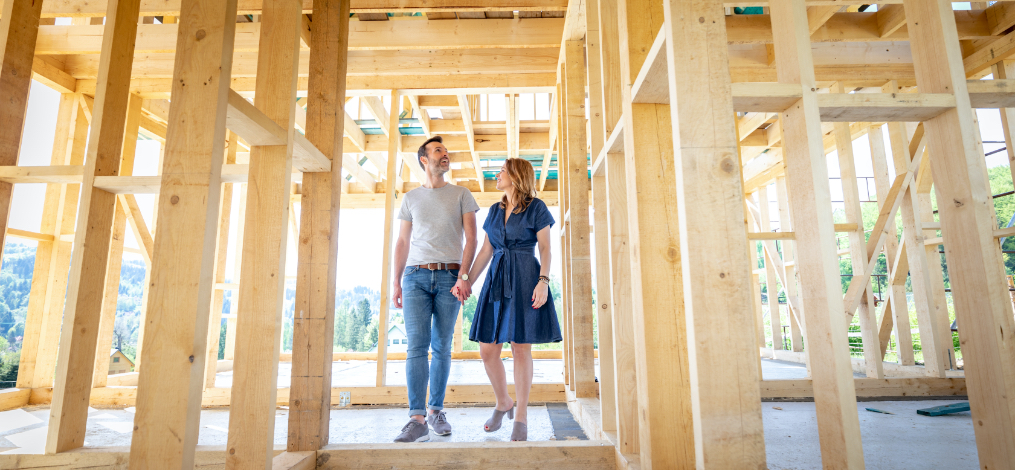Prepare to live wide open
Follow the progress of your Riverfield land as we prepare it for your dream home.

Purchaser information
Download these useful forms and information whenever you need them.
FAQ
The idea of buying a new house in a new community can be daunting and very exciting at the same time. Before making a decision it is important to speak with a mortgage advisor to help you understand all of your financial options. There are many lenders available who will guide you through the process to find a home loan that best suits your needs. During the chat with your financial/mortgage advisor you should consider discussing ancillary costs (bank and government charges) and any grants (first home owner, etc.) that may be involved in your project. If you’re not sure where to start, just let us know and we can assist you by providing a range of lenders/brokers you can talk too.
When selecting a block of land there are some key questions that can help determine the block that best suits your needs. You should consider:
- Have you already decided on a house?
- What is the minimum land size required?
- Budget – Have you spoken to your mortgage advisor?
- Have you spoken to a builder to understand the general cost to build your home?
- Size of the block – How much room do you need?
- Orientation of the block and what direction will your house face?
- What other blocks will suit your needs?
- What other additional amenities do you need to consider to enhance your lifestyle?
Some of these questions might seem daunting but our friendly staff are here to help. We would be happy to sit down with you and work out what best suits your needs.
Just like choosing your land there are some key questions that can help you determine your ideal home. You should consider:
- Space requirements – How many bedrooms do you require?
- Single storey or double storey?
- What will your family’s needs be in the future?
- Design – Modern or contemporary?
- Have you considered the budget that was discussed with your financial/mortgage advisor to complete your home?
- Do you want an outdoor entertaining area?
- Is there a similar home under construction that you can at least drive past but preferably safely visit?
- Design guidelines – The aim of the Design Guidelines is to assist all future Riverfield owners in preparing an appropriate design response to achieve a consistently high quality of homes and landscaping, Is your builder aware of the design guidelines? Be sure to ask them what (if any) impact this will have on your home design? If you need help finding the right builder or you just want to find out where you can view some homes on display, we would be happy to recommend some.
There are a number of Government Grants and incentives available (to eligible purchasers). Whether it be the First Home Buyer’s Grant, Stamp Duty Savings, or Loan Deposit Schemes these programs aim to get you into your new home sooner.
As Government Grants and Incentives do change from time to time, it’s always best to seek advice about what’s currently available and eligibility criteria. Feel free to chat to our sales team who can point you in the right direction.
For more information on the First Home Buyers Duty Concession and eligibility criteria, please speak with your legal advisor and visit the State
Revenue Office’s website: www.sro.vic.gov.au/first-home-owner
A plan of subdivision (POS) is a visual representation of the planned subdivision of land into lots that can be sold separately. You should consult with your legal advisor regarding the plan, further information can be found here.
An easement is a right held by someone to use land belonging to someone else for a specific purpose. Common examples of easements are drainage, sewerage and carriageway easements.
A land title is an official record of who owns the property. It can also include information about mortgages, covenants, caveats and easements affecting the land.
A settlement represents the process of completing the contract of sale. Upon settlement, you become the legal owner of the property. To avoid any delays it is important to confirm with your mortgage lender in the weeks leading up to settlement that you have signed all your mortgage documents and that funds have been made available from your chosen financial institution before the settlement.
You should also make sure you keep in touch with your conveyancer. They will assist you with finalising all the necessary details to settle.
Keep in mind that there are fees involved in buying real estate, including government stamp duty and lodging fees, property searches, legal fees, mortgage insurance and loan application fees. You can get an indication of these fees from your bank/mortgage advisors and conveyancer.
For more information regarding some of these terms, please consult with your legal advisor or visit: https://www.propertyandlandtitles.vic.gov.au/land-titles/common-terms
Construction progress
See the construction of Riverfield evolve in a series of spectacular 360º interactive images.